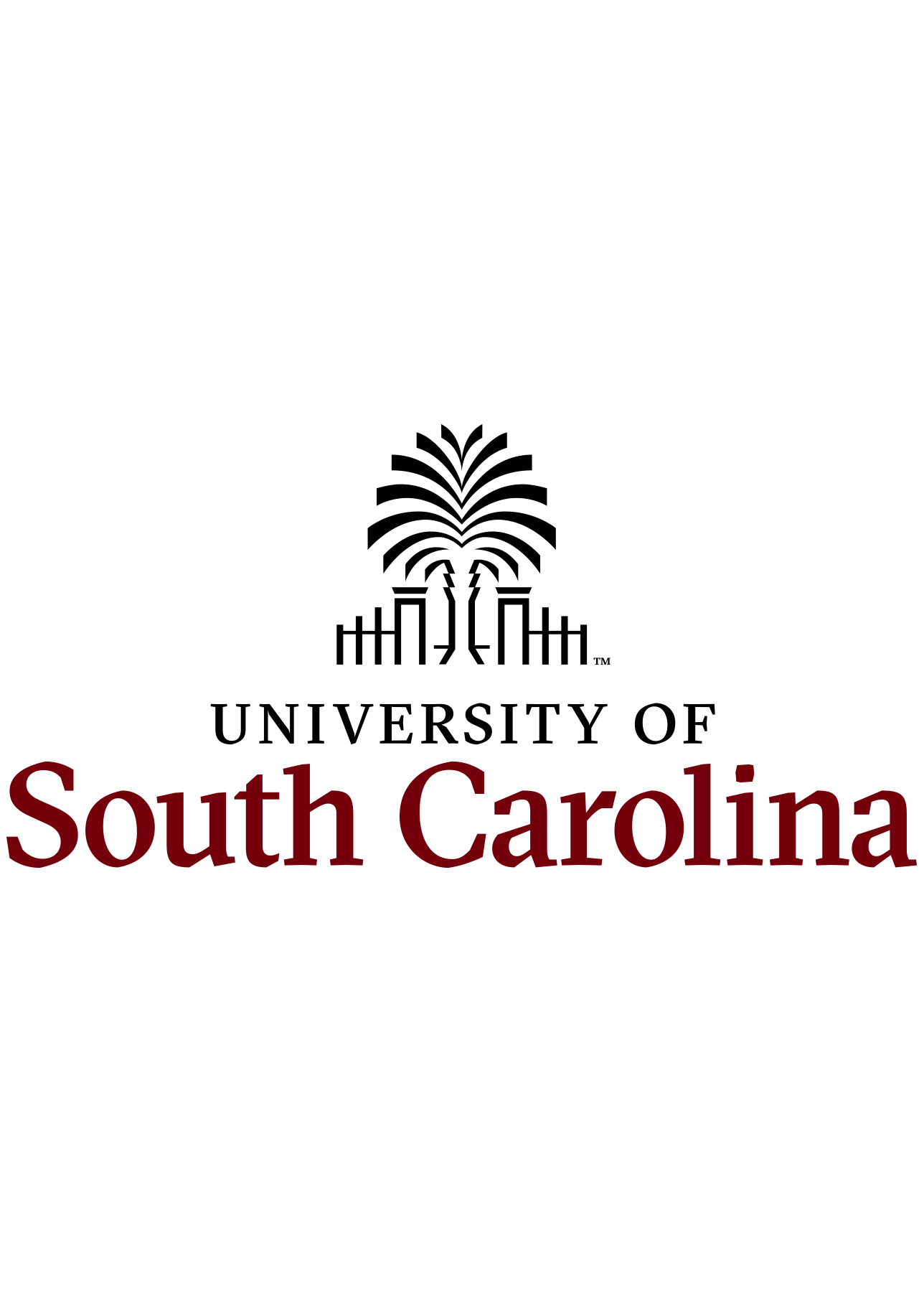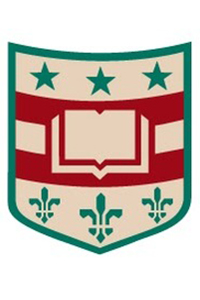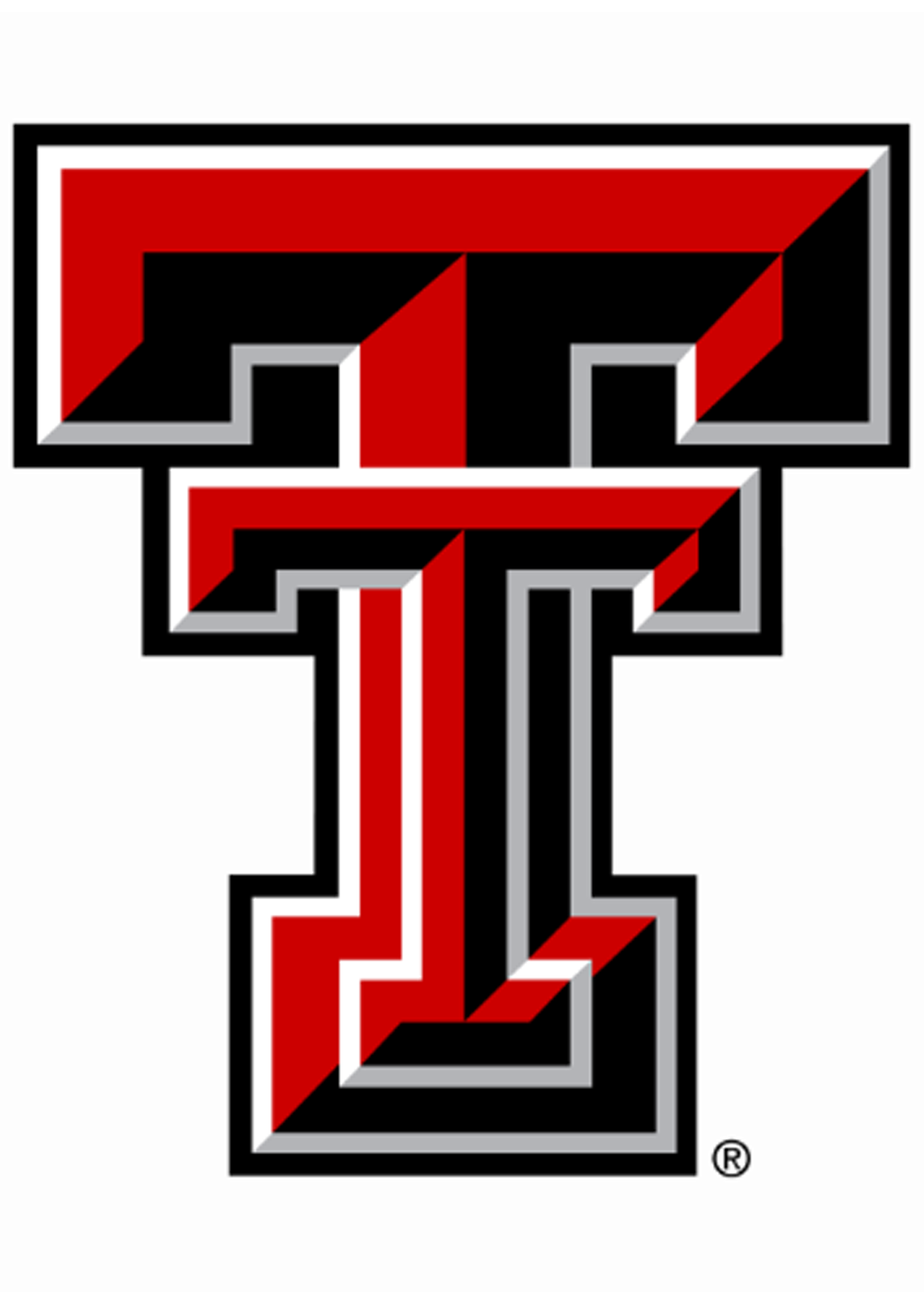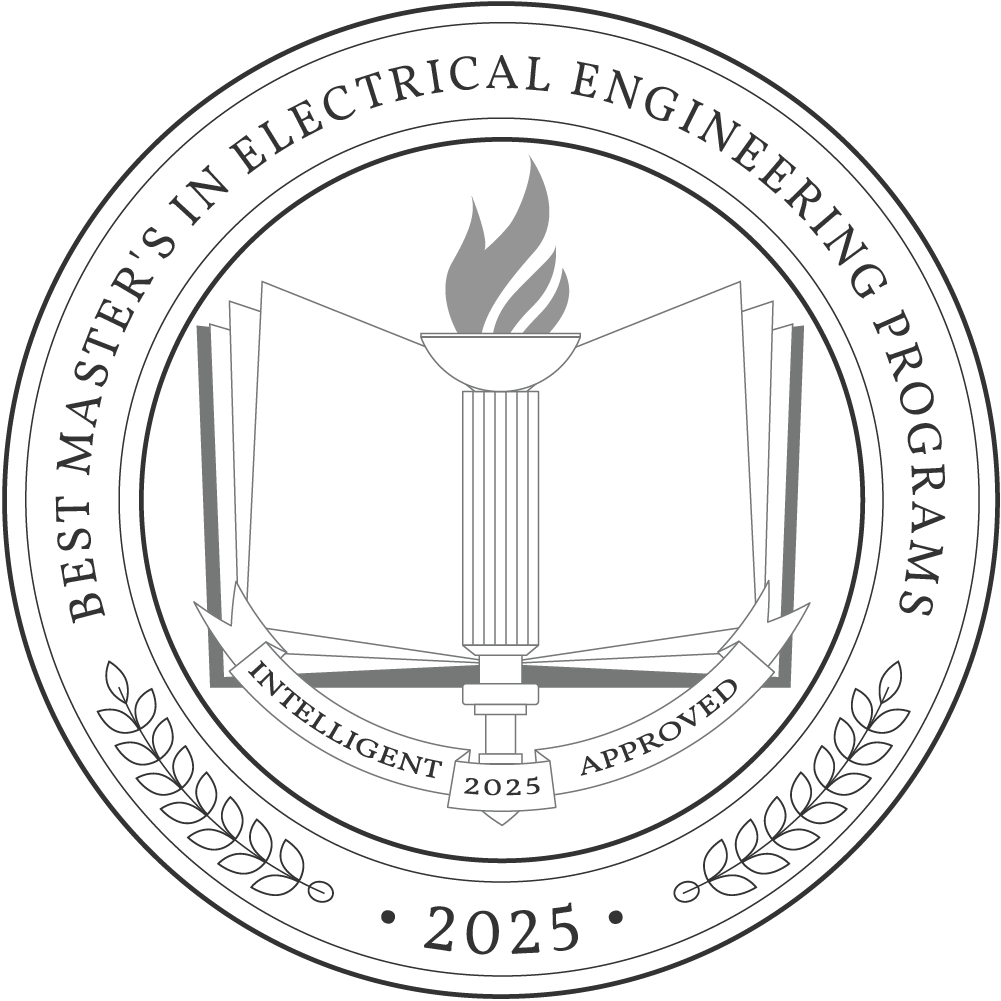As a working electrical engineer, advancing your career into leadership roles or achieving higher pay may be your next move. Pursuing a master’s in engineering can help you secure positions such as engineering managers with a median salary of $165,370 or positions within the top 10% of electrical engineers, earning a median salary of $172,050.
Typically spanning two years for full-time students and four to five years for part-time students, these degree programs are a wise investment in your future. With an average tuition cost of $19,749, the potential for significant salary increases post-graduation makes this initial expense a valuable investment in your future.
Why Trust Us
The Intelligent.com Higher Education Team is dedicated to providing students with independent, equitable school and program rankings and well-researched resources. Our expert-driven articles cover topics related to online colleges and programs, paying for school, and career outlooks. We use data from the U.S. Department of Education’s College Scorecard, the National Center for Education Statistics, and other reputable educational and professional organizations. Our academic advisory team reviews content and verifies accuracy throughout the year for the most current information. Partnerships do not influence rankings or editorial decisions.
- Analyzed over 2,000 national, accredited, and nonprofit colleges and universities
- 800+ rankings pages are reviewed and updated yearly
- Content is informed by reputable sources, surveys, and interviews with academic advisors and other experts
- Over 100 data points are reviewed for accuracy and quality throughout the year, including sources
How we rank schools
Our list features the best Master’s in Electrical Engineering degree programs at top colleges nationwide. Each school featured is a nonprofit, accredited institution — either public or private — with a high standard of academic quality for post-secondary institutions.
We evaluated each school’s program on tuition costs, admission, retention and graduation rates, faculty, reputation, and the student resources provided for online students. We collected data from trusted sources like the National Center for Education Statistics, individual school and program websites, school admissions counselors, and other data sources. Then, we calculated the Intelligent Score on a scale of 0 to 100 based on the following criterion:
Academic Quality:
- Admission rate versus enrollment rate
- Retention rate of students who return after year one
- Accreditation status (regional and programmatic)
- Nonprofit status, both private and public institutions
Graduation Rate
- Overall graduation rate
- Total number of currently enrolled students, including diversity metrics
- Student-to-faculty ratio
Cost and ROI
- In-state and out-of-state per-credit tuition rates and fees
- Required credits to graduate
- Earning potential after graduation
- Availability of federal student loans, scholarships, and other financial aid options
Student Resources
- Available student services for online-only and hybrid programs
- On-campus amenities like tutoring centers and the number of libraries
Read more about our ranking methodology.
Best 32 Accredited Master’s in Electrical Engineering Programs
FiltersInstitution Type
Status
- Intelligent Score
- Alphabetically By University Name
- Acceptance Rate
- Enrollment
- In-state Graduate Tuition
- Out-of-state Graduate Tuition
- In-state Undergraduate Tuition
- Out-of-state Undergraduate Tuition

Stanford University
Intelligent Score: 99.96In-state: $55,473
Out-of-state: $55,473
In-state: $54,315
Out-of-state: $54,315
SAT: 1420-1570
ACT: 31-35
$1,391
On-Campus
Western Association of Schools and Colleges Senior College and University Commission
45

USC Viterbi
Intelligent Score: 99.18In-state: $12,288
Out-of-state: $33,528
In-state: $13,737
Out-of-state: $13,737
SAT: 1140-1340
ACT: 25-31
$2,543
On-Campus
Western Association of Schools and Colleges Senior College and University Commission
28

Columbia University
Intelligent Score: 98.76In-state: $57,864
Out-of-state: $57,864
In-state: $49,024
Out-of-state: $49,024
SAT: 1460-1570
ACT: 33-35
$2,462
On-Campus
Middle States Commission on Higher Education
30

UC San Diego Jacobs School of Engineering
Intelligent Score: 96.86In-state: $11,442
Out-of-state: $41,196
In-state: $11,442
Out-of-state: $11,442
SAT: 1310-1530
ACT: 30-35
Resident: $341
Non-Resident: $760
On-Campus
Western Association of Schools and Colleges Senior College and University Commission
48-52

University of Washington
Intelligent Score: 96.18In-state: $10,629
Out-of-state: $37,998
In-state: $16,278
Out-of-state: $16,278
SAT: 1200-1453
ACT: 27-33
$1,064
On-Campus
Northwest Commission on Colleges and Universities
45

California Polytechnic State University
Intelligent Score: 95.21In-state: $33,522
Out-of-state: $53,706
In-state: $40,608
Out-of-state: $40,608
SAT: 1240-1470
ACT: 22-33
$398
Hybrid
Western Association of Schools and Colleges Senior College and University Commission
45

Washington University in St Louis
Intelligent Score: 93.26In-state: $83,476
Out-of-state: $83,476
In-state: $87,900
Out-of-state: $87,900
SAT: 1500-1570
ACT: 33-35
$2,688
On-Campus
Higher Learning Commission
30

University of Michigan - Dearborn
Intelligent Score: 92.76In-state: $16,520
Out-of-state: $53,669
In-state: $24,344
Out-of-state: $24,344
SAT: 1340-1520
ACT: 31-34
Resident: $506
Non-Resident: $960
On-Campus, Online
Higher Learning Commission
30

University of South Florida
Intelligent Score: 92.45In-state: $4,559
Out-of-state: $15,473
In-state: $8,350
Out-of-state: $8,350
SAT: 1160-1320
ACT: 25-30
Resident: $347
Non-Resident: $771
On-Campus
Southern Association of Colleges and Schools Commission on Colleges
30

New Jersey Institute of Technology
Intelligent Score: 91.29In-state: $14,448
Out-of-state: $30,160
In-state: $20,624
Out-of-state: $20,624
SAT: 1200-1390
ACT: 25-31
In-State: $593 - $938
Out-of-State: $876 - $1,388
On-Campus
Middle States Commission on Higher Education
30

Northwestern University
Intelligent Score: 88.63In-state: $58,227
Out-of-state: $58,227
In-state: $56,067
Out-of-state: $56,067
SAT: 1430-1550
ACT: 33-35
$2,044
On-Campus
Higher Learning Commission
32

Texas Tech University
Intelligent Score: 87.37In-state: $8,683
Out-of-state: $20,953
In-state: $6,788
Out-of-state: $6,788
SAT: 1070-1240
ACT: 22-27
Resident: $544
Non-Resident: $972
On-Campus
Southern Association of Colleges and Schools Commission on Colleges
30-36

University of Pennsylvania
Intelligent Score: 86.67In-state: $53,166
Out-of-state: $53,166
In-state: $37,678
Out-of-state: $37,678
SAT: 1460-1570
ACT: 33-35
$2,725
On-Campus
Middle States Commission on Higher Education
30

North Carolina State University
Intelligent Score: 85.23In-state: $6,535
Out-of-state: $26,654
In-state: $9,095
Out-of-state: $9,095
SAT: 1230-1410
ACT: 27-32
Resident: $525
Non-Resident: $1,635
On-Campus, Online
Southern Association of Colleges and Schools Commission on Colleges
31

George Washington University
Intelligent Score: 84.33In-state: $55,961
Out-of-state: $55,961
In-state: $31,770
Out-of-state: $31,770
SAT: 1270-1450
ACT: 30-33
$1,200
On-Campus, Online
Middle States Commission on Higher Education
30

Case Western Reserve University
Intelligent Score: 83.73In-state: $52,448
Out-of-state: $52,448
In-state: $47,920
Out-of-state: $47,920
SAT: 1340-1520
ACT: 31-34
$2,248
On-Campus
Higher Learning Commission
30

Ohio University
Intelligent Score: 83.51In-state: $27,574
Out-of-state: $38,254
In-state: $18,138
Out-of-state: $18,138
SAT: 1070-1290
ACT: 22-27
Resident: $505
Non-Resident: $1,001
On-Campus, Online
Higher Learning Commission
36

Arizona State University
Intelligent Score: 83.39In-state: $10,710
Out-of-state: $28,800
In-state: $11,720
Out-of-state: $11,720
SAT: 1100-1320
ACT: 21-28
Resident: $884
Non-Resident: $1,428
On-Campus
Higher Learning Commission
30
How to Choose a Master’s in Electrical Engineering Program
Choose your area of study
Selecting an area of study is crucial when considering a master’s in electrical engineering, as this decision will directly influence your career trajectory and program selection. For instance, students aiming to work in energy transmission or renewable sources may be well-suited for a specialization in power systems, while those seeking careers in telecommunications may prefer to concentrate in communications and signal processing. Meanwhile, individuals interested in automation and advanced manufacturing may excel in robotics and control systems.
Research schools and programs
Once you’ve chosen your specialization, it’s time to research potential programs. Consider asking the following questions to help guide your search:
- How does the curriculum support my intended specialization?
- Who are the faculty, and what are their credentials and expertise?
- What are the research and lab facilities like?
- How does the program integrate with industry?
- What are the career outcomes for graduates?
Answers to these questions can typically be found on university websites, by contacting program coordinators directly, or by attending an information session. You can also reach out to current students or alumni through LinkedIn or Reddit to gain more of an insider perspective.
Prepare for tests and applications
Now that you have a shortlist of schools that will be an excellent fit for your career goals, you’ll want to begin preparing early to streamline your application process.
It’s generally recommended to first focus on two of the most time-consuming elements of preparing your application — writing your personal statement and preparing for the GRE. For your personal statement, dedicate ample time to highlighting your academic achievements, career goals, and reasons for choosing your specialization. If your program requires GRE scores, consider enrolling in a test prep program well in advance to improve your performance.
Additionally, collect letters of recommendation and secure your transcripts ahead of time to avoid any last-minute stress.
Select your program
Ultimately, selecting your program is a personal decision. Still, you can make this easier by revisiting your initial research criteria and focusing on what matters most to you out of your educational experience.
This is also an excellent time to carefully review each program’s total cost of attendance alongside any financial aid offers, as this will ensure you’re making an economically feasible decision that’s aligned with your career goals.
Determine how you’ll pay for your degree
When planning how to finance your degree, it’s essential to prioritize options that minimize debt rather than increase it. Begin by seeking scholarships and grants, which don’t require repayment and can often be found through your institution. If available, consider assistantships that offer stipends or tuition waivers for teaching or research roles. If you’re continuing with the same employer, ask if your company provides tuition reimbursement as part of its employee benefits package.
Although federal loans are preferable to private loans due to more favorable interest rates and repayment terms, they should be used sparingly. Remember, every dollar borrowed will need to be repaid with interest, adding to the overall cost of your education.
What Can You Expect From a Master’s in Electrical Engineering Program?
Graduate-level electrical engineering curricula typically include core courses in signal processing, power systems, telecommunications, and semiconductor technology. Like most other engineering degree programs, these programs emphasize practical application through hands-on labs and industry-relevant projects, allowing students to apply theories they’ve learned to real-world challenges.
While some programs offer a thesis option, many are more focused on application rather than research and, therefore, emphasize coursework and projects to develop problem-solving skills without a thesis requirement.
Full-time students can complete their master’s in electrical engineering in two years, while part-time students may take four to five years to complete degree requirements.
Potential courses you’ll take in a master’s in electrical engineering program
- Advanced Digital Signal Processing: Often a core requirement, this course explores the algorithms and methods used to analyze and manipulate digital signals. Students learn techniques such as spectral estimation, adaptive filtering, and discrete Fourier transforms. Typically, the focus is on practical applications in communications, radar, and audio processing, giving learners the tools to innovate in these fields.
- Power System Analysis: Another standard core course, this class covers the operation and design of electrical power systems. Topics include power flow analysis, stability of power grids, and fault detection. After completion, students will significantly understand how modern power systems are managed and optimized.
- Semiconductor Device Fundamentals: Frequently an elective, in this course students analyze the physics and operation principles of semiconductor devices, including diodes, transistors, and LEDs. The course emphasizes the role of these components in electronic circuit design and the development of microelectronic systems.
- Embedded Systems Design: While some curriculums consider this a core course, many offer it as an elective. This class provides practical experience in designing and implementing embedded systems, which combine hardware and software to perform specific tasks. Participants learn to integrate microcontrollers, sensors, and actuators, applying their knowledge to real-world applications like robotics and smart devices.
Master’s in Electrical Engineering Degree Frequently Asked Questions
How do I apply to a master's in electrical engineering degree program?
To apply for your master’s in electrical engineering, you’ll need to meet several standard admission requirements, often including:
- Bachelor’s degree in electrical engineering or a related field
- GRE scores, although some programs may waive this requirement for meeting specific criteria
- Official transcripts from all previously attended institutions
- Letters of recommendation, usually two to three
- Statement of purpose outlining your career goals and reasons for pursuing this degree
- Resume or CV highlighting relevant work and academic experience
Given the variability in program requirements, it’s essential to consult an admissions counselor to ensure you meet specific prerequisites. They can also clarify program expectations and help strengthen your application.
How much does a master's in electrical engineering degree cost?
For the 2020-2021 academic year, the average tuition among graduate programs was $19,749. However, costs can vary significantly based on the institution’s reputation, whether it’s public or private, and your residency status.
In addition to tuition, you should also budget for textbooks, course materials, housing, and commuting costs. Considering these expenses will help provide a more comprehensive financial picture, helping you plan effectively for this educational investment.
How long does it take to earn a master's in electrical engineering degree?
Obtaining your master’s in electrical engineering will typically take two years if you enroll full-time, while part-time enrollment may extend this timeline to four or five years.
Completion timelines are considerably influenced by the total number of required credits, which can vary between programs. Some programs might require as few as 30 credits, but it’s more common for programs to require up to 45, affecting how quickly you can complete your degree.

